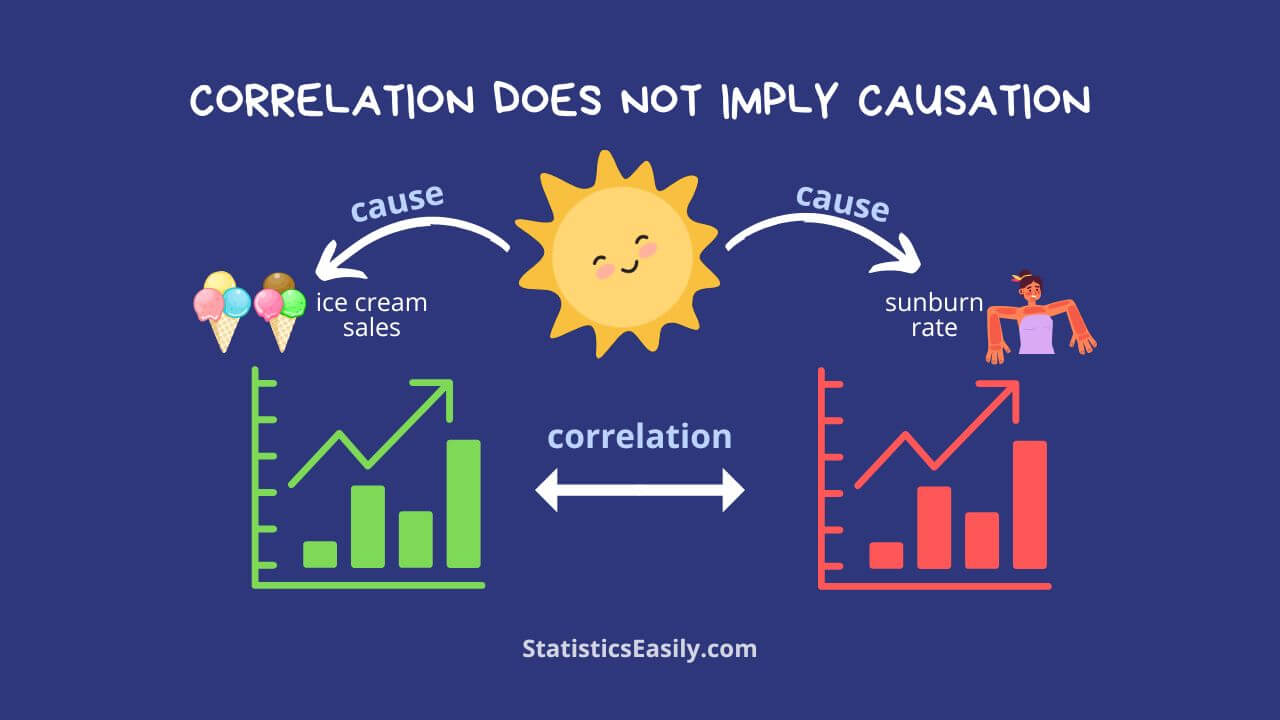5 Ways to Distinguish Correlation from Causation in Data Analysis

Understanding the difference between correlation and causation is essential in data analysis and research. Although it's a common saying that 'correlation does not imply causation,' this principle is frequently ignored or misunderstood, leading to erroneous conclusions and sometimes flawed business decisions. This post will delve deep into 5 robust methods to distinguish correlation from causation in data analysis, ensuring that your interpretation of data is both scientifically sound and practically actionable.
1. Conducting Experimental Research

The gold standard for establishing causation is through experimental research, where one can manipulate variables to observe their effect:
- Control Groups: Use control groups where some participants do not receive the experimental treatment, allowing for comparison.
- Randomization: Randomly assign subjects to different groups to eliminate selection bias.
- Blind and Double-Blind Studies: Implement blind or double-blind studies where neither participants nor researchers know who is receiving which treatment, to minimize any placebo effect or observer bias.
Here, you control the environment, which helps in isolating the impact of one variable on another.
2. Utilizing Statistical Controls

In observational data where experiments are not feasible, statistical methods can help:
- Regression Analysis: Use multivariate regression models to control for confounding variables, allowing for the observation of the relationship between variables while accounting for others.
- Partial Correlation: This technique removes the effect of one or more variables, thus enabling a more accurate assessment of the correlation between two variables.
🔍 Note: Remember, while statistical controls can help identify relationships, they do not ensure causality without further experimental evidence.
3. Establishing Temporal Precedence

To infer causation, it’s critical to determine if one variable precedes the other:
- Time Series Analysis: Analyze the sequence of events over time to see if changes in one variable precede changes in another.
- Granger Causality Tests: Statistically test if one time series can predict another, suggesting causality.
| Method | Description |
|---|---|
| Time Series Analysis | Checks for the sequence of events in time-series data. |
| Granger Causality | Tests if one time series can predict another. |

4. Use of Mediation Analysis

Mediation analysis explores the mechanism through which a variable might influence another:
- Path Analysis: This involves mapping out the relationships between variables to see how one affects another indirectly.
- Mediation Models: Statistical models that identify mediators (variables in the causal pathway between the predictor and the outcome).
5. Employing Propensity Score Matching

Propensity Score Matching (PSM) is used to mimic random assignment:
- Score Calculation: Estimate the probability of treatment given observed characteristics.
- Matching: Match individuals with similar propensity scores to create comparable groups.
Summarizing our journey, we have explored several nuanced methods for distinguishing between correlation and causation, from experimental controls to sophisticated statistical analyses. Each approach provides a layer of understanding to ensure that the conclusions drawn from data are not only reliable but also valid. By employing these techniques, analysts and researchers can navigate the complex landscape of data interpretation with greater confidence, ultimately leading to more informed decisions and robust scientific inquiry.
What is the primary difference between correlation and causation?

+
Correlation indicates that two or more variables change together but does not imply that one causes the other. Causation, on the other hand, means that changes in one variable directly cause changes in another.
Why is it important to differentiate between correlation and causation in data analysis?

+
Mistaking correlation for causation can lead to false assumptions, misguided policies, and incorrect business strategies. Correctly distinguishing the two ensures the actions based on data are both ethically and empirically sound.
Can observational data ever prove causation?

+
While observational data alone cannot prove causation, advanced statistical techniques like regression analysis, mediation analysis, and propensity score matching can provide strong indications of causal relationships when properly applied.



